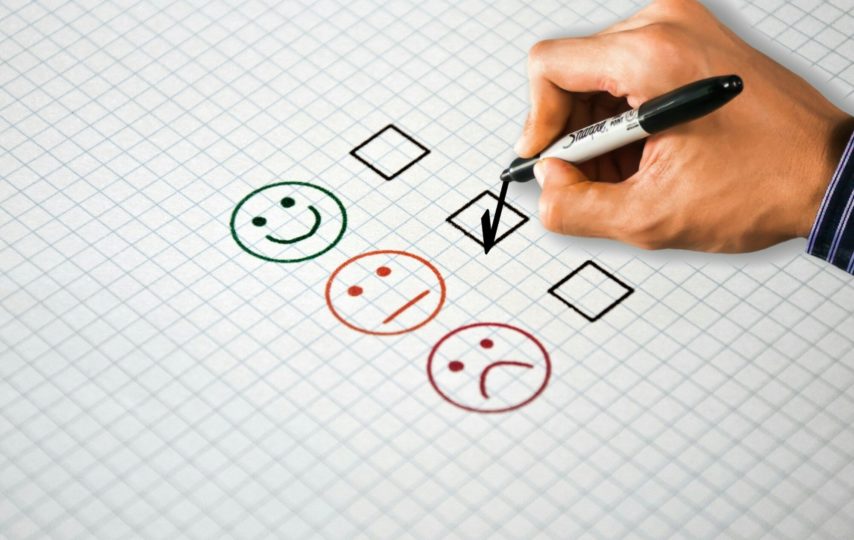Rising political tensions. A global pandemic. Friends and family members losing work or getting sick. People being cruel to one another. The constant comparison scrolling and doom-scrolling. Break-ups and divorces. With so many negative experiences bombarding us, day in and day out, it’s a wonder that any of us manage to remain sane.
Managing your mental health is hard enough as it is. Compound regular management with a constant barrage of negativity in our personal, professional, and political lives. The burden can fast become unmanageable. If you need better coping mechanisms than a bottle of wine or a pint of ice cream, we’re here to help you with these healthier methods below:
Disconnect and Unplug
It’s no exaggeration to state that our phones contribute to the vast majority of our modern negative experiences. Between the doomscroll of dire news and the pressure social media places on us to be “on” at all times, it’s hard to get a moment to think. Much less avoid the negativity.
We know, it’s hard to get away from your phone. Especially when you use it as a tool to keep your schedule straight, or as your lifeline to the outside world during social distancing. However, taking a day, or even a few hours to disconnect, unplug, and do something with your hands can offer therapeutic benefits.
Take a Wait and See Approach
When you’re in the depths of a negative experience, hearing someone tell you to be patient or wait it out is likely to make you want to punch them in the face. Here’s the thing, though: Sometimes, they’re right, and we’re too close to the situation to suss out what’s going on.
A half-finished, serious text conversation. A performance review email from your boss. A threatening letter you got in the mail from your bank. These are all examples of negative experiences that benefit from a wait-and-see approach.
It’s easy to assume the worst when something stressful and unknown happens. However, by practicing patience, you can recover from your negative experience faster.
Practice Radical Self-Acceptance
Self-love and self-acceptance, while similar in execution, are entirely different concepts. When you’re drowning in the depths of the negative experiences in life, self-love, or seeing yourself as valuable and worthy, can feel borderline impossible. Self-acceptance, or a global affirmation of yourself and your feelings, is an easier mark to hit.
Part of radical self-acceptance is accepting all the feelings stemming from this negative experience. Even the ones that most would consider immature, like anger, jealousy, or pettiness. Accept that you feel these emotions. Welcome your anger and sadness without repressing them or drowning in them.
If you do, then you’ll bounce back much faster.
See the Learning Opportunity
We’re not here to tell you that every negative experience is a chance for you to learn. Some things, like the death of a loved one or the state of the world, just feel awful. When we speak of ‘learning from a negative experience’, we mean reflecting on things like getting fired from a job or the end of a relationship.
Don’t get caught up in analyzing what you could or should have done better. Rather, recognize that there may be something you can learn in examining this past experience. Maybe, upon reflection, you’ll discover that your previous partner or workplace was not a good match for you. Or, you’ll realize something that you could have done to improve things, but didn’t.
Either way, if you see the personal setback as a chance to learn, then it will be easier to recover.
Practice Self-Care
Self-care can mean different things to different people. Sadly, some have hijacked the term to justify poor coping mechanisms. Anyone who claims that binge eating or drinking is an act of self-care should raise several eyebrows and concerns.
What we mean when we advise you to practice self-care is to make sure your needs, both physical and emotional, are attended to. Make sure you’re eating enough, that you’re staying hydrated, and that your hygiene is kept up. If you’re feeling alone or neglected, reaching out to friends or family that you trust to release your emotions can be an act of self-care.
Sometimes, the simple act of taking a nap when you’re stressed and overworked can serve as self-care. Treat yourself as gently as you would a young child who didn’t have their physical needs met and lacked the words to tell you. You’ll be surprised how effectively it helps you manage negative emotions.
Remove Yourself from the Situation
Let’s face it: You can’t heal in the same environment in which you got sick. Sometimes, your best recourse when it comes to negative experiences is to remove yourself from the situation. This doesn’t mean running away, per se, but rather, taking a brief retreat from the issue at hand.
You can do this either mentally or physically. Mentally removing yourself from the situation means trying to perceive it from an outsider’s view. Or, refusing to give emotional energy to people or issues that will only waste it. Physically removing yourself can mean seeking something like this retreat or going on a trip into the woods.
Whether you choose physical or mental distance, getting away from a situation that continues piling up negative experiences can only help your mental health.
Recovering from Negative Experiences: A Review
As much as we wish that this weren’t the case, negative experiences are a fact of human existence. All of us must cope with both good and bad experiences in life and must learn how to avoid crashing when the bottom falls out.
Be willing to be patient with the situation, yourself, and the people involved. Do this while honoring your emotions and physical needs, and you’ll recover from your negative experiences before you know it.
If you found this article about handling negative experiences in a positive way helpful and would like to read more like it, then check out the lifestyle section of our blog today for more!













